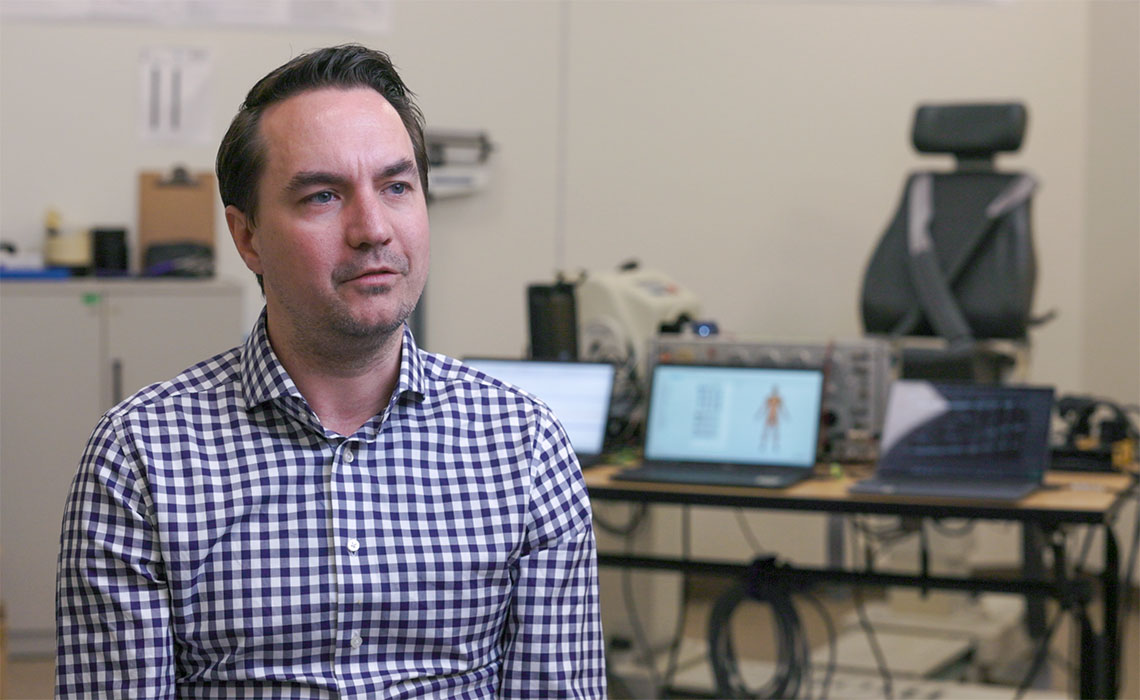Research in motion

Dr. Jared Fletcher, PhD, used to be a competitive long-distance runner, always trying to outrun and outsmart the competition. That eventually led him to delve into how the body performs under such stress.
Fletcher is an associate professor of health and physical education at Mount Royal University who took the question of how the body performs during exercise and ran with it. Fletcher’s primary research goal is to try to gain more insight into how muscles and tendons work during physical activity.
Results could be applied to people who are professional athletes, those engaged in recreational sports activities and to clinical populations with hampered mobilities.
The Achilles tendon is the star of Fletcher’s research, who describes it as a long elastic band in the lower leg that stretches like a spring during walking and running. It’s the longest and strongest tendon in the body and Fletcher wanted to understand it in and out.
That meant looking at how the Achilles reacts under the stress of running by testing how it stretches and recoils. Fletcher’s research also includes identifying what happens to locomotion when the Achilles’ performance is not optimal or compromised.
Fletcher hopes to use his work to provide insights that will be valuable for many populations, including improving performance levels for professional athletes or learning how to alter the muscles and tendons of the lower legs of the average person to improve basic locomotion. There are even implications for how to better design footwear. Changing the properties and materials of footwear can enhance the performance of the lower legs, improving both function and comfort levels.
Fletcher says his research wouldn’t be possible without students.
“The students really run the research program. They quite literally come up with the ideas and we work together to foster those ideas and answer the questions they want to explore. After some training, they run the lab. Without them, the research wouldn’t take place,” Fletcher says.
Fletcher provides the example of a student who, one day after class, proposed that they and Fletcher start work on a project looking at joint hypermobility, which is when a person’s joints have an unusually large range of movement. The student wanted to examine hypermobility’s effect on walking and that lined up with Fletcher’s work on the Achilles and lower leg.
The pair started with literature reviews and then moved through the entire research process together, gathering and analyzing data. Four years of results are now prepared for publication.
As Fletcher states, “Students do everything from ‘I have a question,’ all the way to collecting data in the lab, analyzing it and disseminating it.”
This level of research gives students a head start (or a leg up) on their career and academic paths. Fletcher says that in the health sciences, jobs such as exercise physiologists or physiotherapists require research skills. In grad school, students who have worked with Fletcher can say they have created and answered research questions and are skilled with lab work.

